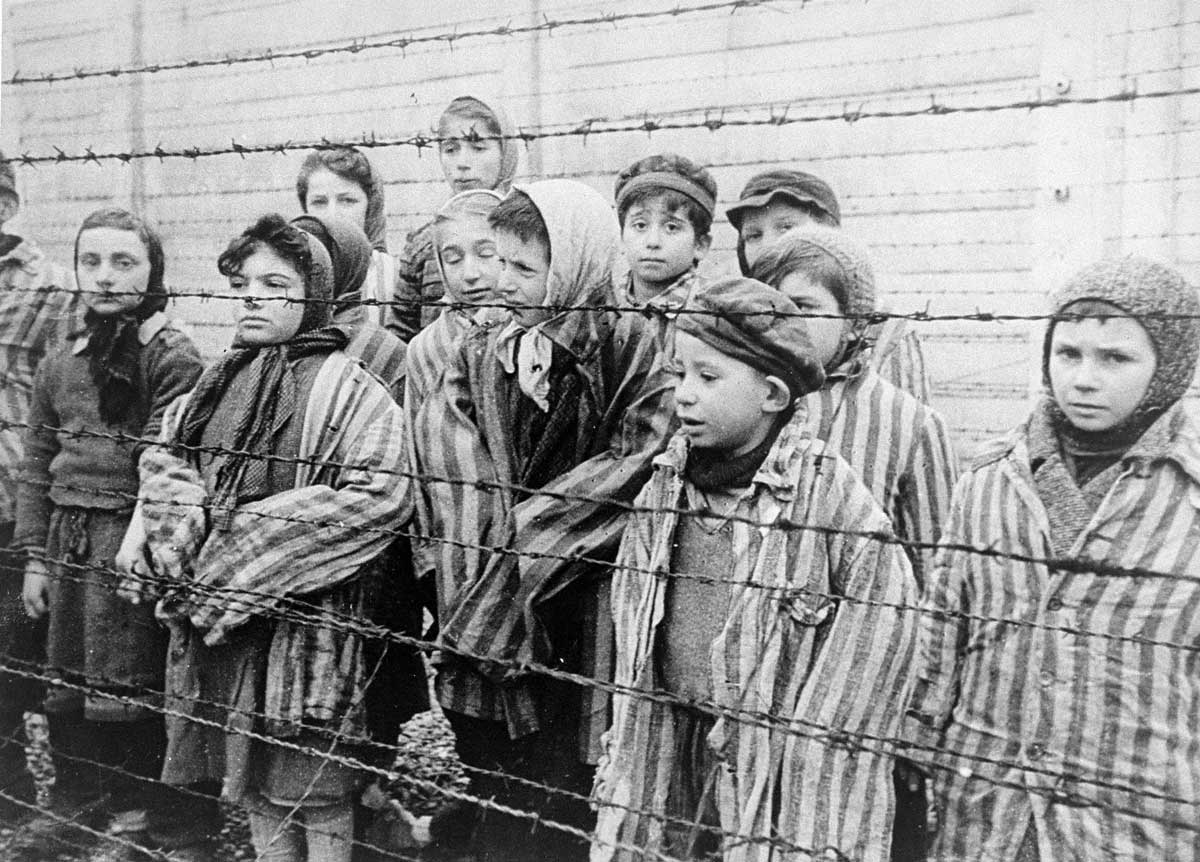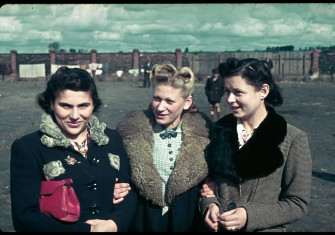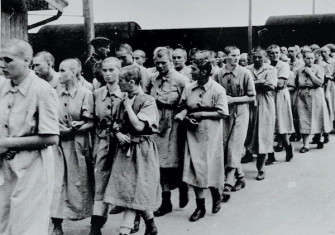The Only Ones Left
Children’s accounts of surviving the Holocaust.

Jackie Y. always thought of himself as a ‘North London Jewish kid’, even after learning in 1951, aged ten, that he was adopted. He later found out he was born in Austria, but his adoptive parents were reluctant to reveal more. Before getting married in a synagogue he had to prove his birth mother was Jewish. Taking this opportunity to snatch documents that his adoptive mother kept in a safe, Jackie discovered his real name was Jona Jakob Spiegel and that he had been in a concentration camp.
Jackie’s experience, as one of the many individual stories of children who survived the Holocaust, illustrates the profound question at the heart of Rebecca Clifford’s book: how do you make sense of your life when you don’t know where you came from? For child survivors, answers did not come easily, if at all. The wartime shattering of their families meant they lost a crucial social environment in which to make sense of their blurry memories. Official documents, produced by and for adults, also neglected children’s lived experiences. Child survivors have also been overlooked by historians and, until recently, in the popular memory of the Holocaust: remarkably, adult survivors often questioned whether children were ‘authentic’ survivors. As Clifford points out, the major reason for their increased profile today is simply that they are the only ones left.
The survivors in this book were aged ten or younger upon liberation at the end of the Second World War and their life stories reflect a diverse set of experiences. Clifford, an oral history specialist, has interviewed dozens of them and has consulted materials in European, Israeli and North American archives. These sources are used to explore how child survivors have constructed meaning from their childhoods.
As child survivors lacked memories of prewar life, liberation was an overwhelming moment of rupture. Numerous children who survived in hiding found themselves torn away from what were often warm and loving host families. Reunions with surviving parents or siblings could be unsettling rather than joyful: the biological family, in many cases, was no longer familiar. As one child recalled, ‘I sat on my daddy’s lap. But it wasn’t quite the same’. Adults began to tell children to forget what had happened during the war.
After 1945, the adult world – including surviving family members, care homes, aid agencies, Jewish organisations and a host of other external forces – attempted to shape the lives and memories of child survivors in various ways. Children were often aware of, and able to subvert, these agendas. Child agency is a core theme in this book, which presents numerous examples of children concealing information or emotions in order to navigate their own path through the competing claims on their lives. For instance, two siblings migrated to Canada under a scheme for orphans: it later transpired they were fully aware that their mother was still alive. Another boy told a matron in his Surrey care home he was thinking of his mother when he cried: in fact, the tears were because of bullying by other children. Afraid to tell on the bullies, the boy understood how to explain away his crying to adults.
Clifford also explores broader contexts which have affected the interpretation and presentation of survivor memory. The debunking of vogueish psychological theories is particularly effective: one study from the late 1960s and 1970s suggested marriage failure and employment status among child survivors reflected long-term psychological damage. This conclusion not only ignored important social factors that had affected the children’s life courses, but also failed to recognise that divorce and unemployment rates had generally risen during the period of the study. The children began to resent being viewed as guinea pigs for psychological theories: one even suggested that they represented a continuity of Nazi-era experiments.
Clifford traces the children’s ongoing efforts to reclaim and recover their earliest memories. Jackie Y., against his adoptive parents’ wishes, added his birth mother’s name when registering his second daughter’s birth. Another survivor found she was unable to hold her daughter after her fourth birthday, recalling: ‘That was the age I was when my mother left me.’
Outside the private sphere, growing academic interest in the Holocaust, cheaper international travel and the establishment of survivor organisations have provided child survivors with increased opportunities to discover more about their uncertain pasts and establish a sense of collective identity. Clifford describes how the normalisation of ‘giving Holocaust testimony’ since the late 1970s has caused difficulties for child survivors, as the popular desire for coherent and ‘usable’ Holocaust narratives conflicts with their own broken and fragmented stories. The construction of well-composed child survivor narratives generally involves repackaging experiences to suit audience expectations, often including a degree of self censorship. Interviewed in the past, one survivor recalled burning letters written by his murdered parents because their presence had become too painful. In more recent accounts, he mentioned the letters but not the act of destruction.
Survivors is an important addition to the vast scholarship of the Holocaust. It is also a welcome contribution to the history of children and childhoods. Clifford’s thought-provoking reflections on the relationship between childhood, identity and memory will undoubtedly inspire future works about children whose earliest years were marked by upheaval, tragedy and chaos. Perhaps inevitably, the subject matter makes this a deeply challenging book. That I had to set it aside several times before I could continue is no slight on the author, but rather a testament to the powerful legacy of these children’s life stories.
Survivors: Children’s Lives After the Holocaust
Rebecca Clifford
Yale 344pp £20
Edward Packard is Lecturer in History at the University of Suffolk.






